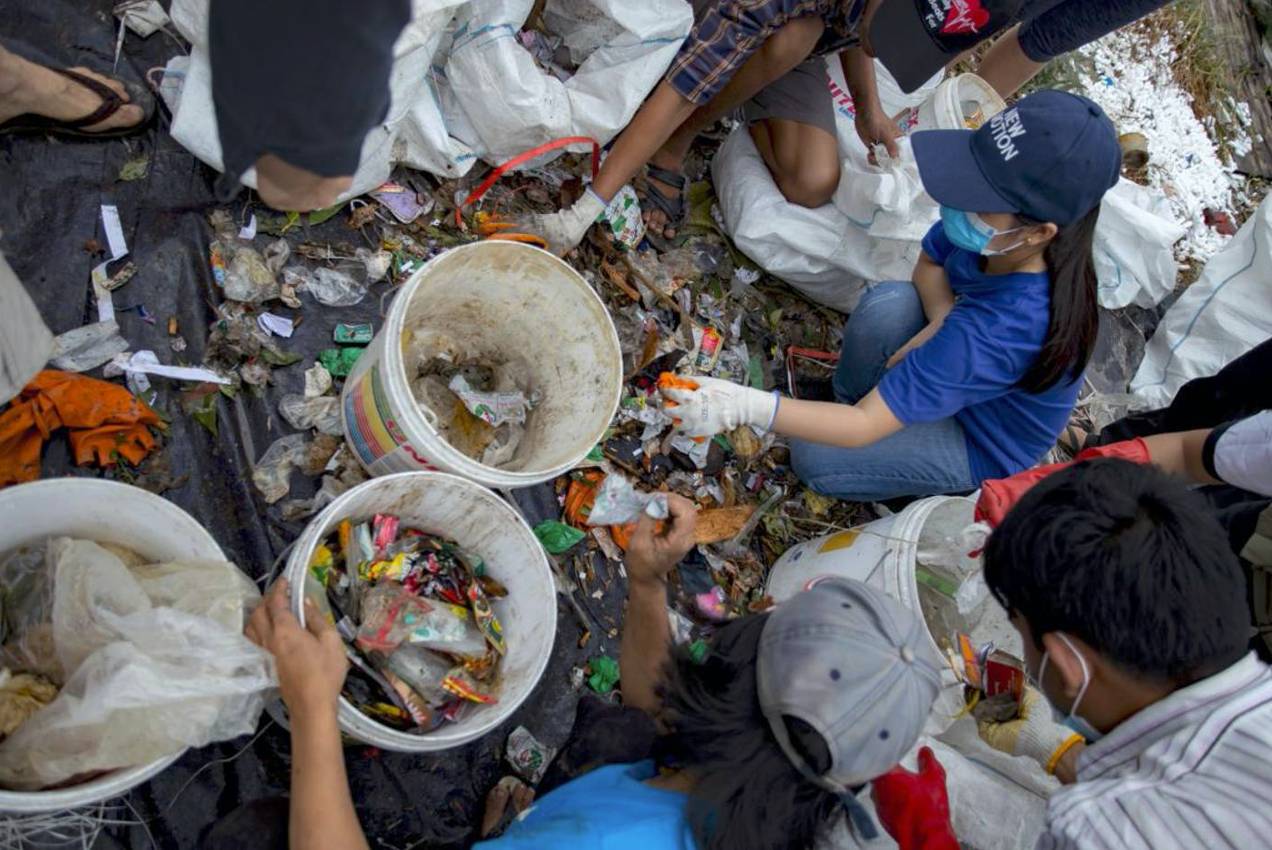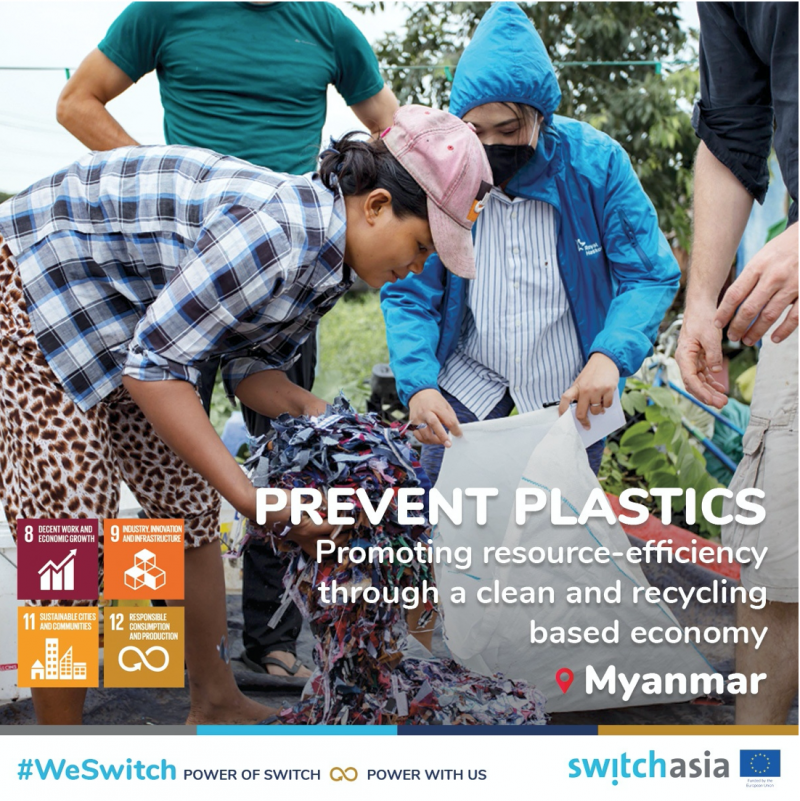
Promoting green growth and sustainable circular economy is increasingly evident and will be the solution as we are looking towards economic COVID-19 recovery. This is why our engagement needs to be comprehensive. Not only will we support producers on effective waste management and sustainable packaging, we will also keep on raising awareness on plastic prevention and reduction. EU SWITCH-Asia has been active since 2013 in Myanmar and continously supports Myanmar's Sustainable Development Plan and its own goal related to Natural Resources and the Environment for Prosperity. The Prevent Plastics project is a crucial step to ensure a healthy and sustainable future for our generations and our planet.
- Dr. Johann Hesse, Head of Cooperation Section
Rapid economic growth and urbanisation in Myanmar came along with severe problems resulting from ineffective systems for waste collection, transport and disposal. According to France Myanmar Chamber of Commerce and Industry, eighty million plastic bags are used every day in Myanmar. More than 4,160 tons of municipal waste is generated per day in Yangon and 1,120 tons in Mandalay. Out of this, around 13% is plastic waste. Poor practices, lack of reliable and regular waste services, lack of assessments on current practices, waste flows in important value chains, missing minimum standards for the collection, transportation and disposal of waste and the high expenditure and insufficient revenue for the collection of solid waste, are some of the most important issues that are posing risks to public health and the environment. If unresolved, these issues continue to be a burden for the quality of life of residents.
The SWITCH-Asia Prevent Plastics project started in May 2020 to tackle these issues with particular emphasis on: waste management in industrial zones; increasing the likelihood and attractiveness of adopting more sustainable options for packaging by working at the MSMEs level in cooperation with the retailer’s association and identifying green finance possibilities; and raising awareness for young consumers, heads of home and producers (supermarkets and other retailers). A Consumer Awareness Survey on Plastics and an Industrial Zone Waste Audit have already been conducted.
 "We are in a position to create good impact and change the structure of sustainable waste management in the industrial zones. Consumer behaviour and awareness play a significant role in the implementation of positive change, as well as the cost-effectiveness for the producers", says Denis Shaefer, Team Leader at Prevent Plastics.
"We are in a position to create good impact and change the structure of sustainable waste management in the industrial zones. Consumer behaviour and awareness play a significant role in the implementation of positive change, as well as the cost-effectiveness for the producers", says Denis Shaefer, Team Leader at Prevent Plastics.
According to the recent Consumer Awareness Survey on Plastics, around 49% out of 2,127 respondents are trying to reduce one or more items of single use plastic in their daily life. Through the Waste Survey in the Industrial Zones we have also found that majority of factories are willing to adapt to sustainable manufacturing systems, however, they lack technical knowledge and skills. The absence of financial support also hinders positive change.
Accurate and reliable data on total waste generation is essential in Myanmar, yet, it is still limited. The SWITCH-Asia Prevent Plastics project is working towards closing this gap and, through its actions, support the process of increasing awareness among both consumers and producers on appropriate and effective sustainable waste management approaches.
Through capacity building initiatives, workshops and technical assistance, policy recommendations, public-private dialogues and campaigns, Prevent Plastics will contribute to the achievement of Sustainable Development Goals in Myanmar, particularly SDG12 on Responsible Consumption and Production. The project will also support the country in its transition towards a more green and circular economy.


